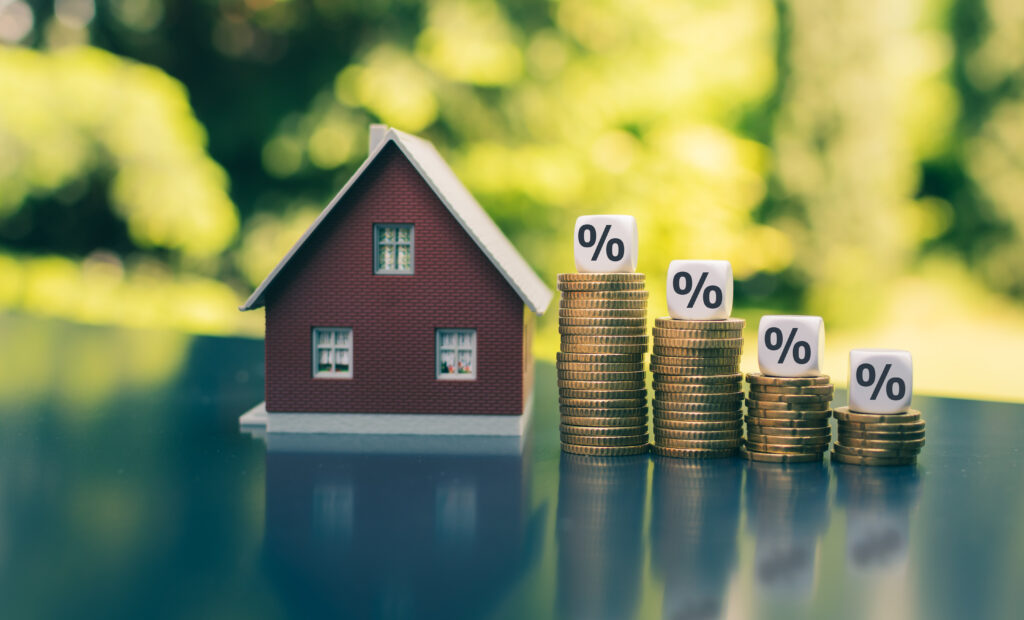Buy A House Now Or Later? -- Mortgage Rate vs. Home Price

If you’re a homebuyer and are keeping a close eye on rising mortgage rates, you may be wondering if higher rates will lead to a drop in home prices. You may be thinking: If mortgage rates rise, prices of homes for sale must fall because otherwise, those homes will become less affordable, right? However, there’s no strong relationship between house prices and interest rates.
Generally, mortgage rates tend to rise when the economy grows, the job market is healthy, and wages are rising. In this environment, people can afford more and are more willing to take out a larger mortgage. Meanwhile, factors like inventory and the cost of construction drive housing prices.
FACTORS IMPACT HOUSING PRICES
Many people have told me to wait until interest rates go up and the housing market crash. But, do interest rates have that big of an impact on housing prices? We can see that they directly impact how much house someone can afford, but about 1,000 other factors drive housing prices up and down. Some of the things that we must look at in regards to housing prices are:
- Housing supply: How many houses are currently for sale compared to the demand for housing
- Economy: Do people have jobs and money to pay for housing?
- Lending guidelines: Are the current loans based on solid financials or pipe dreams?
- Population changes: Is the population increasing or decreasing?
- New construction: Are enough new houses being built for demand?
- Prices and affordability: Are prices too high for most people to buy?
BUY A HOUSE NOW WHILE MORTGAGE RATES ARE STILL LOW?
Currently, mortgage rates are still pretty close to historic lows, but there are great fears that they could rise substantially over the next year and beyond. Meanwhile, home prices are at all-time highs on a nominal basis, though many people feel they’re pretty high, perhaps even unsustainable. There aren’t that many homes available, so even a list price that exceeds its appraised value isn’t an issue.
It’s possible to pay more for a house while interest rates are low and obtain a cheaper monthly mortgage payment. And as a result, spend a lot less interest over the duration of the loan term. Let’s look at a scenario where mortgage rates rise, and home prices slump to see which situation is more favorable to the home buyer.
Visit Mortgage Calculator to help determine estimated monthly payments, total interest payments, and total payments based on the mortgage criteria you select.
SCENARIO 1: A HIGHER PURCHASE PRICE
Sales price: $400,000
Loan amount: $320,000 (20% down payment = $80,000)
Mortgage rate: 3%
Mortgage payment: $1,349
Total payment: $485,688
Total interest paid: $165,688
Let’s pretend you don’t want to wait and buy a home for $400,000 now. The price feels a little steep, but the 30-year fixed rate is attractive at 3%. You put down 20% to avoid PMI and snag a lower rate, and wind up with a monthly P&I payment of $1,349.13. Over 30 years, you pay $165,688 in total interest for the loan.
Now imagine home prices fall 10 percent over the next year or two, while mortgage rates rise from 3% to 4%, the latter of which is certainly possible given the inflation concerns out there. (We’ll ignore the fact that 2022 home prices are expected to be 16% higher than they currently are…)
SCENARIO 2: A HIGHER MORTGAGE RATE
Sales price: $360,000
Loan amount: $288,000 (20% down payment = $72,000)
Mortgage rate: 4%
Mortgage payment: $1,375
Total payment: $494,984
Total interest paid: $206,984
As you can see, buying the home at the higher price point with the lower mortgage rate results in both a cheaper monthly mortgage payment and significantly less interest paid over the loan term. That could also make qualifying easier concerning the debt-to-income ratio requirement mortgage lenders impose. However, the down payment is $8,000 higher on the more expensive house, which could prove a barrier to homeownership if liquid assets are low. But we’re still looking at overall savings of roughly $40,000 with the more considerable loan amount, yet lower-interest-rate mortgage.
Hopefully, this illustrates the importance of low mortgage rates. Of course, many variables can come into play.
CONCLUSION
Home prices and mortgage rates aren’t that closely correlated over time. Mortgage interest rates may not affect the cost of housing at all. Home prices may rise even if mortgage rates increase, despite being more expensive to get financing for said purchase.
Looking into 2022, I could see both home prices and mortgage rates rise in tandem thanks to inflation and a continued lack of housing supply.
